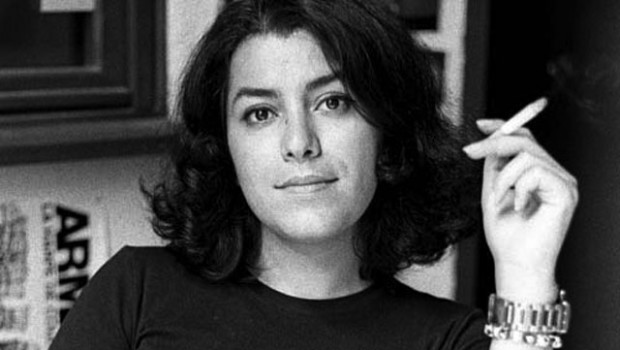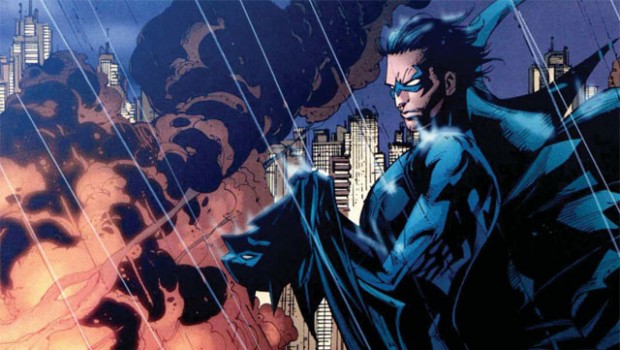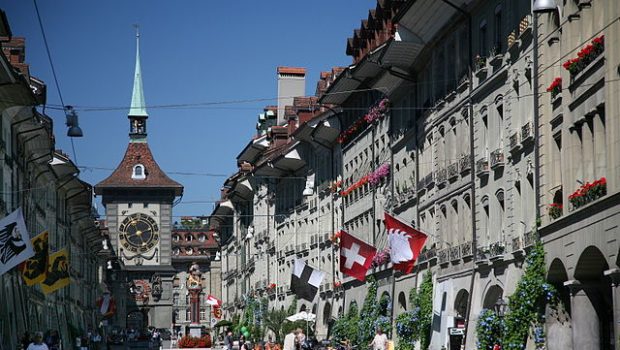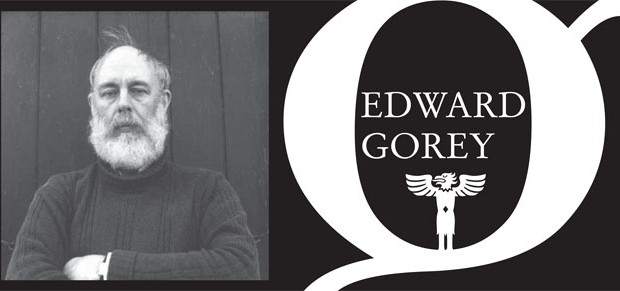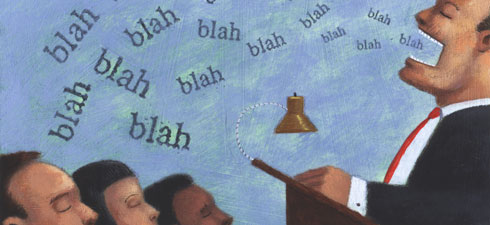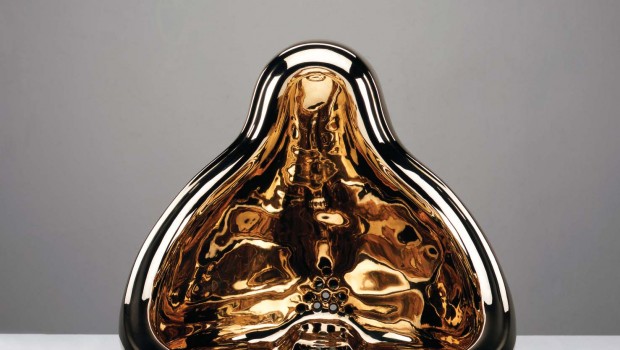Anagrama, 40th Anniversary
¡Feliz cumpleaños, Anagrama!
Sandra Lorenzano
1.
“A real book–because there are also impostors–is something as material and vital as a loaf of bread, or a jug of water,” Antonio Muñoz Molina wrote. “Like water and bread, friendship and love, literature is an attribute of life and a weapon of intelligence and joy.”
Beyond the shadow of a doubt, this phrase can be read as a portrait of Jorge Herralde. He has experienced his passion for books as something as vital as water and bread. Moreover, he has shared this passion with us all, making “real books” for our own enjoyment, for our own happiness. That’s why I am so glad to be able to thank him today, as a reader. Many of his books haven’t only enriched me, they’ve made me angry and sad, hurt and happy. And there are even a few that have changed my life. Herralde once said that an editor’s autobiography is his catalogue. What’s surprising is that his catalogue is, to a large degree, our autobiography as well. And I swear, the Spanish-language publishing houses this can be said of can be counted on the fingers of one hand. And so, this tribute we pay him today is, above all, an expression of gratitude by his devoted readers and fans. Who hasn’t dared explore new literary territories simply because “if Herralde published it, it must be good”? Thus, many writers have fallen into our hands who are Japanese, Iranian, Finnish, Italian, Russian, Polish… authors whom, otherwise, we surely would never have been able to read in Spanish.
2.
“When Barça wins, there is a god, and he’s both garnet and blue,” Joaquín Sabina sings. Allow me to mention another of Jorge Herralde’s passions, because the last of the Mohicans now publishing in our language is also a soccer fan–a “pambolero,” as we Argentineans would say–of pure stock. But the passion is mutual: Pepe Guardiola, for example, confessed that he fi nished reading Albert Cohen’s Belle du Seigneur, one of Anagrama’s hits and number 100 in the collection “Narrative Panorama,” ten minutes before going out onto Wembley Field, where Barcelona won the Europe Cup. “Cómo no te voy a querer…”
3.
Anagrama was born as a space, fi rst and foremost, for the voices of counterculture well into the Franco dictatorship. The protests of ’68 were still going strong, and young Jordi, determined to abandon engineering in favor of books, thought the time was ripe to embark on his publishing adventure. Perhaps because he kept in mind, having experienced it in the flesh, that, as Steiner says, when the going gets rough, literature becomes essential. Like parachuting, Juan Villoro would add with characteristically playful accumen: “Reading is an activity that only a few practice for pleasure in normal situations, and that everyone requires in an emergency.”
This year, the fantastic “parachute” Herralde created turns 40, and he’s celebrating with three thousand titles in his possession. Three thousand titles that form part of that river-of-novels that swells day by day. Or city-of-novels, to use another of the metaphors he likes to fall back on. A city built “like a dog house than can be expanded into a one-family home and even a row of condominiums, while at the same time, over the decades, expanding through its collections in the manner of broad avenues, until reaching others that are like dead-end alleyways.”
That in this forgetful era–despite the fact that the so-called “memoir industry” is one of the main enterprises of this, the clumsiest of “cultural industries”–that in this “use it, then throw it away” era, where books last only a couple of weeks on the table of new releases and from there are sent off to die in warehouses; that in an era of disposable narrators and poets, where it is only too easy to press the “delete” key, so that nothing marks us, nothing harms us, “so that no trace remains, no, none at all,” as Bronco sings; that an editor today should claim his real successes are not his best-sellers, but his “long-sellers,” speaks to us of a vision of literature and books that is surprising, to say the least. And can a successful business be built this way? Quite a lesson for all those who nourish the ferocity of trends, and the frivolization of thought. Herralde defends a complicit gaze at literature, one rather close to the magic, the mystery, of those butterflies we felt in our stomachs at age seven or eight when we’d open a book–in my case, among the branches of a damask tree, submerging myself in the adventures of Sandokan or Prince Valiant, two heroes I’d welcomed directly from my father’s childhood found inside marvelous yellow books from the Robin Hood collection. Or I’d cry alongside the March sisters at the funeral of Peep, the canary. Perhaps that’s why I am especially fond of Jorge Herralde, although he may not know it: because he’s accompanied me for so many years that I’ve lost count, and he’s made butterflies flutter in my stomach at the slightest bookish provocation. The latest ones invaded me not long ago together with two gems from his catalogue: The Rain Before It Falls, by Jonathan Coe, and The Sea, by John Banville. I still carry their salty trace on my skin, as well as the melancholy mourning of both narrators. And to this list, I could add so many, many more books and authors with whom I’ve conversed throughout my life, at times animatedly, at times nostalgically or furiously. I know that each of us could make his or her own list.
While writing these pages, I noted the number of yellow or grey or black spines in my library (and now, red, thanks to the new collection “Another turn of the screw,” plus the pocket-sized multicolored ones, of course). And I recall that Herralde’s intention was for his titles to make a “stain.” Few things stand nearer to my image of the publishing house he has built than this chromatic memory. The color of book spines on the shelves of narrative and essays. Spines that exhibit a strange letter A. The start of their own alphabet. The aleph of books. The beginning of all possible worlds. And it is by no means gratuitous, that reference to an author whom Herralde would have “loved to edit,” in his own words. Because in a way, he has made real Borges’ dream of transforming the world into a library. Some say that the tongue and the library are the only astrolabes that remain for those of us in exile.
4.
For us, Latin American readers, Anagrama has been a travel diary, a map to hidden treasure, and a lifesaver we’ve been able to cling to during the worst of times (the River Plate version of Villoro’s parachute); a lifesaver as surprising, but far more efficient, than the one Groucho Marx handed to Thelma Todd in that anthological scene (and by the way, parenthetically, let me say that Groucho is also in Anagrama’s catalogue). While on that side of the ocean, Franco and his dictatorship were dying, we were inaugurating several new ones over here. Few things remained to hold onto in the middle of the gale, and books were one of them. If and when they weren’t the sort that the military were after, of course. One day I’ll tell Jorge Herralde just how many of the titles he published with enormous precision, passion, and great difficulty over in Barcelona we tried to save from our own historical and personal shipwreck. How many we had to get rid of, throats tight, by burning them on the grill in the backyard. Or by throwing them into the river after someone came up and told my father, “Been grilling a lot lately, haven’t we, neighbor?” Many of us gradually learned through Herralde the trails blazed by literature at a time when we could hardly find anything to set our eyes on that wasn’t a “reminder of death,” as Quevedo wrote.
This completed, somehow, an almost too perfect example of what Herralde himself calls a “virtuous cycle”: “for the literary, political, and sentimental education of Spanish generations growing up in the post-war era, the existence of publishing houses like Losada, Sudamericana, and Emecé was fundamental.” All of them were backed or founded along the River Plate by Spanish exiles.
It was thanks to books, and the solidarity of many, of course, that we were able to feel once again that infectious “optimistic will;” a phrase Herralde chose for the title of the story of his editorial experiences in Latin America, recently published by the Fondo de Cultura Económica –another publishing house that is very dear to us and a key part of our history as inhabitants south of the Rio Grande.
Pessimistic intelligence, optimistic will, Gramsci wrote, and Jorge Herralde took up the implications of this phrase almost as the motto of his relationship to our countries. “The big groups,” he wrote, “employ pessimistic intelligence given the very real difficulty of publicizing new Latin American authors on the Spanish language circuit. We independent editors, on the other hand, continue betting until out body (or our business) holds out, on the optimism of the will.” And this, as we know very well in this part of the world, has also allowed us to become known amongst ourselves. There is a somewhat perverse circuit of publication and distribution enabling the authors of this continent to be read someplace other than their own country of origin (or sometimes other than their city of origin, or even the block where they were born) only if they go through Spain. Anagrama is turning the tables on this by fostering publication not only in its Barcelona headquarters, but also in various countries of Latin America–Mexico being one highly visible example–and distributing them across the entire Spanish-speaking world.
Independent editing is inherent to democracy, as André Schiffrin proposes and Jorge Herralde knows only too well. Given the advance of multimedia businesses and great publishing holding companies, we must protect the plurality and diversity of our voices. Because, in the end, to keep watch over the word as a space for dialogue, coexistence, learning, and above all, as a space for freedom is, in the end, to keep watch over that which truly makes us human beings.
And this is what has sustained Jorge Herralde’s labor of love over the course of forty years at the forefront of one of the most positive and prestigious publishing houses of the Spanish-speaking world–a world that proudly boasts the letter Ñ as one of its signs of identity. Something rare in a reality that seems to have become increasingly mired in noise and insignificance, not even attaining “sound and fury,” that tale told by an idiot imagined over four centuries ago.
In light of this, we return to the jug of water and the loaf of bread, to friendship and love–that is to say, to our indispensable salvation by words–as we tour the avenues and alleyways, the parks and also the odd marvelous shack, of the city Anagrama has built for us.
1.
“Un libro verdadero – porque también hay libros impostores – es algo tan material y necesario como una barra de pan o un jarro de agua – escribió Antonio Muñoz Molina -. Como el agua y el pan, como la amistad y el amor, la literatura es un atributo de la vida y un arma de la inteligencia y la felicidad.”
Sin duda, podríamos leer esta frase casi como un retrato de Jorge Herralde. Él ha vivido su pasión por los libros como algo tan necesario como el agua y el pan. Pero hay más: ha compartido esa pasión con todos nosotros, haciendo “libros verdaderos”, para nuestro propio regocijo, para nuestra propia felicidad. Por eso estoy tan contenta de poder darle hoy las gracias, como lectora. Muchos de sus libros no sólo me han enriquecido, me han hecho sufrir, llorar, enojarme, reír, sino que unos cuantos incluso me han cambiado la vida. Alguna vez él dijo que la autobiografía de un editor es su catálogo. Lo sorprendente es que su catálogo sea, en gran medida, también nuestra autobiografía. Y les juro que las editoriales en lengua castellana de las que podemos decir esto pueden contarse con los dedos de la mano. Así que este homenaje que le rendimos hoy es sobre todo un agradecimiento de lectores fanáticos y devotos. ¿Quién no se ha atrevido a explorar nuevos territorios literarios simplemente porque “si lo publicó Herralde debe ser bueno”? Así han llegado a nuestras manos autores japoneses, iraníes, finlandeses, italianos, rusos, polacos… que de otra manera seguramente nunca hubiéramos podido leer en español.
2.
“Cuando gana el Barça cree que hay dios y es azul grana”, canta Joaquín Sabina, así que permítanme hablar también de otro de los amores de Jorge Herralde; porque el último mohicano de la edición en nuestra lengua es también un futbolero – “pambolero” diríamos nosotros – de pura cepa. Pero la pasión es mutua: Pep Guardiola, por ejemplo, confesó que había terminado de leer Bella del Señor, de Albert Cohen, uno de los libros consentidos de Anagrama, y el número 100 de la colección “Panorama de narrativas”, diez minutos antes de salir para el partido de Wembley en el que el Barcelona ganó la copa de Europa. “Cómo no te voy a querer…”.
3.
Anagrama nació en pleno franquismo, como un espacio, en primer término, para las voces de la contracultura. Los reclamos del 68 se escuchaban fuerte todavía, y el joven Jordi, decidido a dejar la ingeniería por los libros, pensó que era el mejor momento para iniciar su aventura editorial. Tal vez porque tenía presente, por haberlo vivido en carne propia, que, como dice Steiner, “cuando las cosas empeoran, la literatura se vuelve imprescindible”. Como el paracaidismo, agrega Juan Villoro con la lúdica agudeza que lo caracteriza: “La lectura es una actividad que sólo unos cuantos practican por gusto en situaciones normales y todos necesitan en una emergencia”.
Este año el “paracaídas” fantástico creado por Herralde está cumpliendo 40 de vida, y lo celebra con tres mil títulos en su haber. Tres mil títulos que forman parte de esa novela-río que va construyendo día a día. O de esa ciudad, para usar otra de las metáforas a las que le gusta recurrir, que nace “como la caseta del perro, que puede agrandarse hasta convertirse en una vivienda unifamiliar e incluso en un bloque de pisos, a medida que, con las décadas, se despliega, con sus colecciones a modo de avenidas más o menos ampliar hasta otras como callejones de final abrupto”.
Que en esta época desmemoriada – a pesar de que la llamada “industria de la memoria” sea uno de los principales negocios de las más burdas “industrias culturales” -; en esta época del “usar y tirar”, de libros que duran apenas un par de semanas en las mesas de novedades y de ahí van a morir a las bodegas; tiempo de narradores y poetas desechables, en que es tan fácil apretar la tecla “delete” para que nada nos marque, nada nos lastime, “para que no quede huella, que no y que no”, como canta Bronco, que un editor diga hoy que sus verdaderos éxitos no son los best-sellers sino los “long-sellers” habla de una visión de la literatura y los libros que es, para decir lo menos, sorprendente. ¿Y así puede construirse una empresa de éxito? Gran lección para quienes alimentan la ferocidad de las modas, y la frivolización del pensamiento. Herralde defiende una mirada cómplice sobre la literatura, cercana a la magia, al misterio, a esas mariposas que sentíamos en el estómago a los siete u ocho años cuando abríamos un libro, en mi caso, en las ramas de un damasco, y me sumergía en las aventuras de Sandokán o del Príncipe Valiente, dos héroes que había recibido directamente de la infancia de mi padre, en maravillosos libros amarillos de la colección Robin Hood. O lloraba con las hermanas March, en el entierro de Peep, el canario. Quizás por eso le tengo especial cariño a Jorge Herralde, aunque él no lo sepa, porque me ha acompañado durante tantos años que he perdido la cuenta, y ha hecho que las mariposas vuelvan a revolotear en mi estómago a la menor de sus librescas provocaciones. Las últimas me invadieron de pronto hace muy poco con dos de las joyas de su catálogo: La lluvia antes de caer, de Jonathan Coe, y El mar de John Banville. Todavía me quedan en la piel un dejo salado y la melancolía del duelo de los dos narradores. Y a esta lista podría sumar muchos, muchísimos libros y autores más, con los que he charlado a lo largo de la vida, a veces animadamente, a veces nostálgica o furiosamente. Sé que cada uno de nosotros podría hacer su propia lista.
Mientras escribía estas páginas miraba la cantidad de lomos amarillos o grises o negros que tengo en la biblioteca (y ahora rojos, gracias a la nueva colección “Otra vuelta de tuerca”, y los multicolores compactos, por supuesto). Y recuerdo que Herralde ha dicho que busca que sus títulos hagan “mancha”. Pocas cosas más cercanas a mi imagen de la editorial por él creada que este recuerdo cromático. El color de los lomos de los libros en los estantes de narrativa y de ensayo. Lomos que muestran una extraña A. Comienzo de su propio alfabeto. Aleph de los libros. Inicio de todos los mundos posibles. Y no es gratuita la referencia a un autor a quien a Herralde le hubiera “encantado editar”, según sus propias palabras. Porque en cierto sentido, él ha hecho realidad el sueño “borgeano” del mundo vuelto biblioteca. Hay quienes dicen que la lengua y la biblioteca son las únicas brújulas que nos quedan en el exilio.
4.
Para nosotros, lectores latinoamericanos, Anagrama ha sido carta de viaje, mapa de tesoros escondidos, y salvavidas al que aferrarse en los peores momentos (versión rioplatense del paracaídas de Villoro); salvavidas tan sorprendente como el que Groucho Marx le da a Thelma Todd, en la antológica escena, pero muchísimo más eficaz (por cierto, y entre paréntesis, déjenme decirles que también Groucho está en el catálogo de Anagrama). Cuando de aquel lado del océano morían Franco y su dictadura, de éste estrenábamos varias. Pocas cosas quedaban a las que aferrarse en plena tormenta, y los libros eran una de esas pocas cosas. Siempre y cuando, claro, no fueran de aquellos que los militares perseguían. Algún día le contaré a Jorge Herralde, cuántos de los títulos que él publicaba con enorme tino, pasión y no pocos trabajos en la Barcelona de ese tiempo, nosotros tratábamos de salvar de nuestro propio naufragio histórico y personal. De cuántos tuvimos que deshacernos con la garganta apretada, quemándolos en la parrilla del fondo o tirándolos al río después de que, como alguna vez he contado, se acercó alguien a decirle a mi padre: “Demasiados asaditos, ¿no vecino?”. Muchos fuimos aprendiendo con él los caminos que la literatura abría cuando casi no hallábamos cosa en que poner los ojos que no fuese “recuerdo de la muerte”, como escribió Quevedo.
Se cerraba así, en cierto modo, un ejemplo casi demasiado perfecto de “círculo virtuoso”, como el propio Herralde lo llama: “para la educación literaria, política y sentimental de las generaciones españolas que crecieron en la posguerra, fue fundamental la existencia de editoriales como Losada, Sudamericana y Emecé”, fundadas o alentadas en el Río de la Plata por exiliados españoles.
Fue gracias a los libros, y a la solidaridad de muchos, claro, que volvimos a contagiarnos de ese “optimismo de la voluntad”; frase con la que Herralde titula el relato de sus experiencias editoriales en América Latina, recientemente publicado por el Fondo de Cultura Económica, otra editorial entrañable, clave para nuestra historia de habitantes del sur del río Bravo.
Pesimismo de la inteligencia, optimismo de la voluntad, había escrito Gramsci, y Jorge Herralde tomó lo que esta frase implica casi como lema de su relación con nuestros países. “Los grandes grupos utilizan – escribió – el pesimismo de la inteligencia ante la dificultad muy real de dar a conocer a nuevos autores latinoamericanos en el circuito en lengua española. Los editores independientes, por el contrario, seguimos apostando, hasta que el cuerpo (o la empresa) aguante, por el optimismo de la voluntad.” Y esto, lo sabemos muy bien por estas tierras, nos ha permitido también conocernos entre nosotros. Existe un circuito bastante perverso de publicación y distribución que hace que los autores de este continente puedan ser conocidos en algún lugar diferente a su propio país de origen (a veces sólo a su ciudad de origen, o incluso a la cuadra en la que nacieron) únicamente si pasan por España. Anagrama le está dando la vuelta a esto propiciando la publicación no sólo en su sede barcelonesa, sino también en diversos países de América Latina, dentro de los cuales México ocupa un lugar muy destacado, y distribuyéndolos en todo el mundo de habla castellana.
La edición independiente es algo inherente a la democracia, plantea André Schiffrin y lo sabe más que bien Jorge Herralde. Ante el avance de las empresas de multimedios y los grandes holdings editoriales es necesario proteger la pluralidad y diversidad de voces. Porque finalmente el cuidado de la palabra como espacio de diálogo, de convivencia, de aprendizaje, pero sobre todo como espacio de libertad es, en última instancia, el cuidado de aquello que nos hace verdaderos seres humanos.
Y esto es lo que, a través de cuarenta años al frente de una de las editoriales más propositivas y prestigiosas del mundo en español, del mundo que ostenta orgullosamente la letra Ñ como uno de sus signos de identidad, ha sostenido el trabajo amoroso de Jorge Herralde. Algo poco frecuente en una realidad que parece cada vez más sumida en el ruido y la insignificancia. Ni siquiera “Sound and fury”, el bla bla bla del idiota imaginado hace más de cuatro siglos.
Frente a esto volvemos al jarro de agua y a la barra de pan, a la amistad y al amor; es decir, a la imprescindible salvación por la palabra, recorriendo las avenidas y los callejones, los parques y uno que otro tugurio maravilloso, de esa ciudad que ha creado Anagrama para nosotros.



